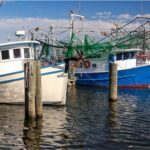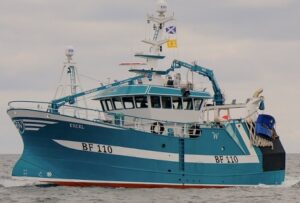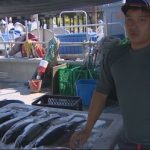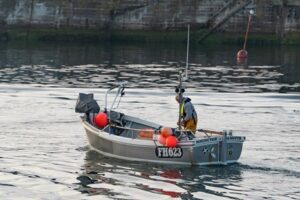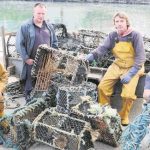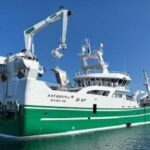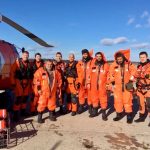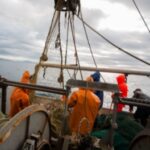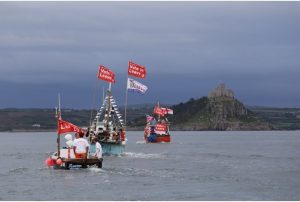Monthly Archives: September 2018
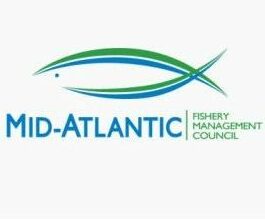
Mid-Atlantic Fishery Management Council Meeting in Cape May, October 1-4, 2018
The public is invited to attend the Mid-Atlantic Fishery Management Council’s meeting to be held October 1-4, 2018 The meeting will be held at the Congress Hall, 200 Congress Place Cape May, NJ. Briefing Materials & Agenda Overview Agenda >click here< Attend Meeting with Adobe Connect >click here< Listen Live!18:33
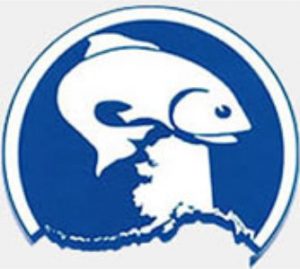
North Pacific Fishery Management Council meeting in Anchorage, October 1-9, 2018
The North Pacific Fishery Management Council will meet October 1-9, 2018 at the Hilton Hotel in Anchorage, Alaska. The Agenda >click here< and Schedule >click here< are available, as well as a list of review documents and their associated posting dates. Listen online while the meeting is in session >click here<17:58
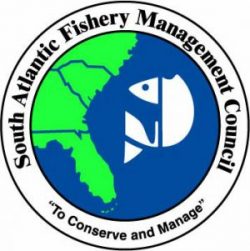
RESCHEDULED: South Atlantic Fishery Management Council meeting in Charleston, September 30 – October 5, 2018
The South Atlantic Fishery Management Council will postpone its quarterly meeting originally scheduled for September 16 – 21, 2018 in Charleston, SC due to the threat of Hurricane Florence. The rescheduled Council meeting will be held September 30 – October 5, 2018 at the originally planned location: Town and Country Inn at 2008 Savannah Highway, Charleston, SC. Complete Agenda >click here< for details. Webinar Registration: >Listen Live, Click here< To visit the SAFMC >click here<17:47
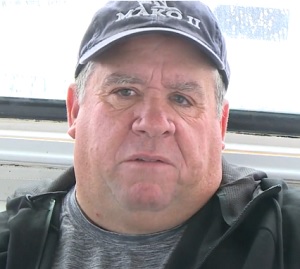
Doctor becomes friend after he saves local fisherman’s arm
A Narragansett fisherman, Capt. David Tyrrell, nearly died after a serious onboard accident three years ago. Thanks to a miraculous medical procedure from Lifespan orthopedics surgeon Dr. Christopher Got, as well as a fighting sprit, Capt. Tyrrell is back on the water. His career on the seas, not to mention his life, nearly came to an end on a cold March day. While on his charter boat, the Mako II, Tyrrell was doing some routine, below-deck maintenance. But as he kneeled down, the string from his hooded sweatshirt got caught by a hose clamp. “Just pulled me right in within a split second,” he recalled. Video, >click to read<16:51
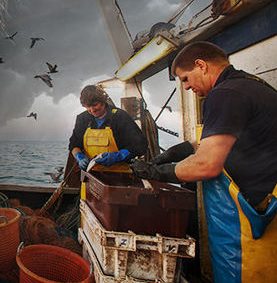
It’s official: EU IS forcing small fleet fishermen out of work with quotas, report says
Policies imposed by Brussels on British fishermen have hugely harmed traditional fishing operations, experts from the University of Kent said. In their paper, researchers from the Kent’s School of Anthropology and Conservation (SAC) stated the EU policies are favouring larger boats and richer owners. As a result, smaller fleets and individuals were pushed out of their livelihood. Professor Douglas MacMillan, one of the researchers taking part in the study, said the CFP focuses too much on fish stock conservation and has no meaningful policy regulations to ensure that quotas for over-fished stock such as tuna are equally shared amongst fishermen. >click to read<
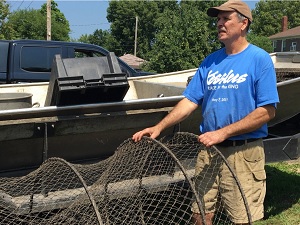
Fourth-generation fisherman keeps tradition alive in Wisconsin
Just as his ancestors did, Mike Valley draws his living from the Mississippi River. But the 1,000-pound catch that fills his handmade nets and homemade jon boat is not destined for wholesalers. Twice a week, Valley and a couple of his friends feverishly clean their overnight haul of carp, buffalo, catfish, perch and sturgeon, which soon will be snatched up by the enthusiastic customers of his retail store, Valley Fish and Cheese.,, >click to read<11:59
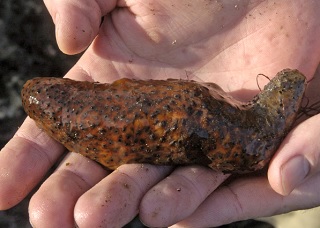
Washington man gets prison for overharvesting sea cucumbers, must pay $1.5M
The owner of a Washington seafood company has been sentenced to two years in prison for overharvesting sea cucumbers and must pay $1.5 million in restitution — the second large bust of illegal sea-cucumber trade in the U.S. West in just over a year. Hoon Namkoong, 62, was also sentenced Friday to three years of post-prison supervision. He pleaded guilty earlier this year in U.S. District Court in Seattle to underreporting the number of sea cucumbers he bought from tribal and nontribal fisheries in the Puget Sound by nearly 250,000 pounds between 2014 and 2016. His company, Orient Seafood Production, then sold them to seafood buyers in Asia and the U.S. >click to read<10:09
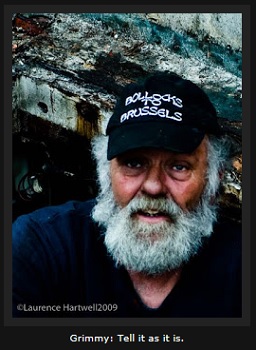
The life of Newlyn trawlerman Mike Mahon – part II.
At the conclusion of Part I, skipper Mike ‘Grimmy’ Mahon revealed how his political activities started, leading to his ceaseless fight with British governments and authorities, reports Phil Lockley. When the senseless dumping of fish gained media attention, waiting in the wings was Grimmy, and the intensity of his activities increased.,, Grimmy and Brian Tobin were united in promoting the fishing industries in Canada and its mother country, the UK. If you are a Brexiteer, read on; it will raise your hopes – and if you are a Remainer, please read on to understand why a huge percentage of British fishermen voted for Brexit, and how Brexit warriors like ex-skipper Mike Mahon will fight on until Britain truly becomes an independent coastal state. Grimmy said: “I never did agree with licences or quotas. In Canada,,, >click to read< Part 1 >click to read<09:30
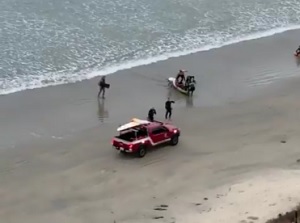
Shark attacks 13-year-old boy diving for lobster at San Diego County beach
A 13-year-old boy diving for lobster was attacked by a shark Saturday morning near Beacon’s Beach in Encinitas, leaving him with traumatic upper body wounds, authorities said. The attack occurred just before 7 a.m. off Neptune Avenue at the foot of Leucadia Boulevard, an hour into opening day of the lobster diving season, authorities said. Chad Hammel was hunting with two friends — an off-duty Oceanside police officer and a state parks lifeguard — when they heard what seemed like a diver’s excited squeals after a catch.,, “His whole clavicle was ripped open,” Hammel said of the victim. ”We told him he’s going to be OK, he’s going to be all right — we got help. I yelled at everyone to get out of the water: ‘There’s a shark in the water!’”>click to read<19:31
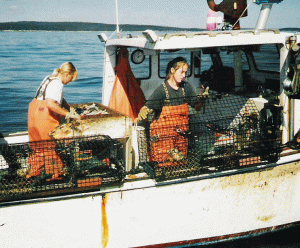
“Maritime Women on Swan’s Island” – Swan’s Island honors women who fished
Betsy Philbrook’s grandmother, Melita Staples, was up for anything except cooking and housecleaning. “She used to bait tubs when she was younger,” said Philbrook. “She was much happier driving a dumptruck or working on a dock than staying home.” As a child, Philbrook, whose family goes back on Swan’s Island to its first settlement, learned how to set lobster traps from her grandmother. She went on to become a sternman for her father, went off to college, bought her first little lobsterboat in 2001, and has been sterning for Dwight Colbeth since 2006. >click to read<13:48
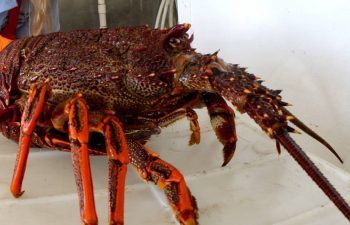
Tasmanian fishers star in new documentary series Aussie Lobster Men
A television series about rock lobster fishers working in the oceans surrounding Tasmania will debut in 2019. The producers of Aussie Lobster Men recently finished filming six lobster boats and their crews working at sea. Minster for the Arts Elise Archer said the documentary series explored the “real-life dramas” of fishers willing to “risk it all in search of one of the world’s most prized seafood delicacy”. >click to read<12:37
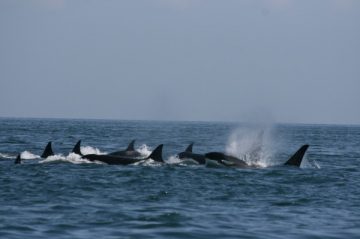
Killer Whale Populations At Risk from Toxic Chemicals
A paper in the Sept. 28 issue of Science says killer whales are at great risk, but not from climate change, loss of habitat or loss of their prey. It will be due to something that sounds very 1970s – PCB, or polychlorinated biphenyl. PCBs are human-made chemicals used for making plastics, electronics, lubricants, heat transformers and other materials and technology. In the late 1970s, studies showed the harmful effects of PCB on humans and on wildlife, such as birds, otters and seals. According to a 2017 paper, killer whale populations off the coast of the most industrialized parts of Europe are close to extinction. >click to read<12:02
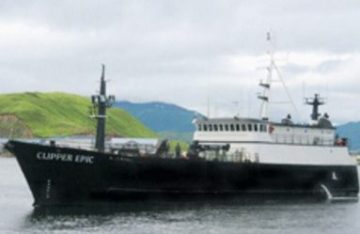
Coast Guard suspends search for man near St. Matthew Island, Alaska
The Coast Guard suspended its search Friday for a man last seen aboard a fishing boat north of St. Matthew Island Thursday. Two Coast Guard C-130 Hercules aircraft crews searched along with the crew of Coast Guard Cutter Douglas Munro and the crews of fishing vessels Clipper Epic, Frontier Spirit and Frontier Mariner for more than 24 hours, covering approximately 894 square nautical miles. The search was suspended at 3 p.m., pending any further developments. -USCG- 08:53
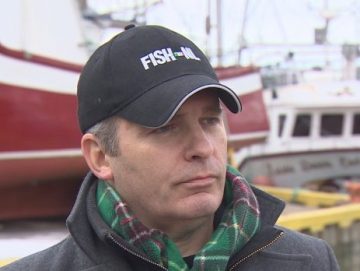
UPDATED: Labour relations board dismisses FISH-NL certification application
The Labour Relations Board on Friday dismissed FISH-NL’s certification application. Federation of Independent Seafood Harvesters (FISH-NL) president Ryan Cleary said he’s “absolutely shocked” by the decision. In a news release, FFAW-Unifor wrote they are “pleased” with the decision by the board, which “confirmed FFAW-Unifor’s longstanding assertion that there are nearly 10,000 inshore fish harvesters in our province, which clearly shows that FISH-NL did not have adequate support to warrant a vote.” Both FISH-NL and FFAW-Unifor appear to agree on one point – that the process over the past couple of years has resulted in unrest within the inshore fishery. >click to read<08:08
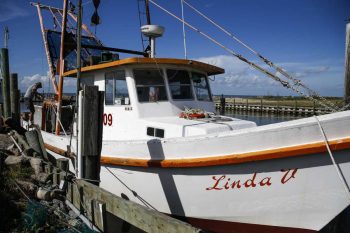
Plans for Texas City ammonia plant spark environmental, health concerns
Roy Lee Cannon stands on the deck of his shrimp boat docked at Eagle Point Fishing Camp during the golden hour of a summer evening,,, It’s the end of a long work day for Cannon, a shift that began before sunrise. The early-morning hours are harder for the 76-year-old Cannon, who has a titanium plate in his arm from an accident and a pig valve in his chest, but this time of day is undoubtedly the most productive. On a good day, Cannon will haul in 600 pounds of shrimp, though his yield steadily has decreased as the bay and ship channel have become a highway of commerce for the oil and chemical industries. So, when Cannon heard an $800 million anhydrous ammonia plant was in the works for the shores of Texas City, he decided that another potential bay polluter should not proceed without protest. >click to read<18:06

FISH-NL Statement Regarding Labour Relations Board decision to dismiss its application for certification.
FOR IMMEDIATE RELEASE Friday, Sept. 28th, 2018 The Federation of Independent Sea Harvesters of Newfoundland and Labrador (FISH-NL) is in the process or reviewing a decision by the province’s Labour Relations Board to dismiss its application for certification. “FISH-NL will have more to say on the decision — including whether an appeal will be filed — in the coming days,” says Ryan Cleary, President of FISH-NL. “But if the FFAW-Unifor or or anyone else involved in the province’s fishing industry believes for one second this decision will bring an end to growing labour unrest within the inshore fishery, they’re living in la la labour land.” 16:37
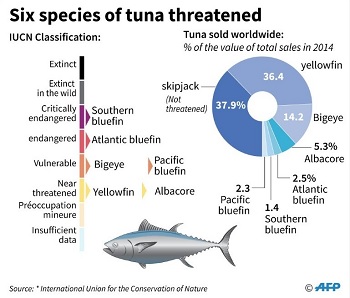
Fisheries nations to decide fate of declining bigeye tuna
Dozens of nations with commercial fisheries in the Atlantic Ocean will grapple next week with a new finding that bigeye tuna, the backbone of a billion dollar business, is severely depleted and overfished.,,, An internal report by 40-odd scientists working under the inter-governmental International Commission for the Conservation of Atlantic Tunas (ICCAT), finalised last week, shows that populations have fallen to less than 20 percent of their historic levels. Even more critical, the stock is barely half the size needed to support a “maximum sustainable yield”—the largest catch that can be taken without compromising long-term stability of the species. Current harvests, overwhelmingly legal, are also more than 60 percent above levels that would give bigeye at least a fighting chance of recovering its numbers, the report said. >click to read<15:46
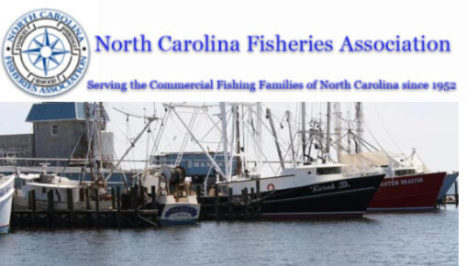
North Carolina Fisheries Association Weekly Update for September 28, 2018
>Click here to read the Weekly Update<, to read all the updates >click here<, for older updates listed as NCFA >click here<12:24
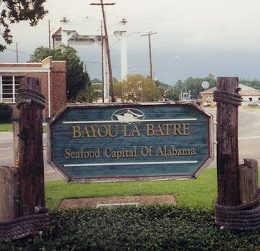
Bayou La Batre – Coastal Alabama Citizens Rise Up And Defeat Job-Killing Eco-Tourism Ordinance
Fearing the loss of both their livelihood and their way of life, residents of Bayou La Batre, Alabama, banded together earlier this summer and scuttled a city ordinance crafted to promote eco-tourism. Located along the Gulf Coast, a few miles southwest of Mobile, Bayou La Batre is a fishing village with a vibrant seafood-processing industry. The city of 2,500 souls has survived Hurricane Katrina and other unpleasant visitors from the tropics. But a 200-page zoning proposal developed by the city’s planning commission with assistance from the Southeast Alabama Regional Planning Commission (SARPC) and environmental groups triggered a storm of protest that sent the city’s mayor and his supporters running for cover. >click to read<12:04

Controversial bycatch monitoring program coming to Maritime lobster industry
Canada’s Department of Fisheries and Oceans is rolling out a controversial bycatch monitoring program in three lobster fishing areas in Nova Scotia, but it won’t say when the program will be introduced across the Maritimes. The department is imposing at-sea monitors for the first time this fall in three lobster fishing districts in Nova Scotia from Halifax to Digby. The department said it needs to collect data on other species — such as cod, cusk and Jonah crab — that are inadvertently being caught in lobster traps, which is known as bycatch. The question is when the monitoring will roll out elsewhere. >click to read<11:14
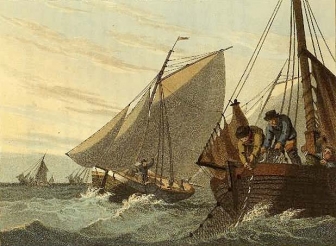
1889: Cape Cod fishermen sail to Cape of Good Hope for mackerel
A century ago the fishermen on Cape Cod were making plans to spend the winter fishing for mackerel off the Cape of Good Hope off the southern tip of Africa, a distance of almost 8,000 miles away from homeport. For the wives of the Cape’s fishermen that would mean nearly year-round widowhood as the trip a century ago took weeks under the best of conditions and mackerel were believed to abound in South African waters after December 1st, the same fish seen here six months later. The Cape Cod schooners will salt the mackerel and return to Provincetown to sell their catch. >click to read<10:12

Coast Guard searching for man last seen aboard a fishing boat near St. Matthew Island, Alaska
The Coast Guard is searching for a man last seen aboard a fishing boat north of St. Matthew Island Thursday. A Coast Guard Air Station Kodiak C-130 Hercules aircrew launched from Kotzebue and is searching for the man along with the crew of fishing vessels Clipper Epic, Frontier Spirit and Frontier Mariner. The man was initially reported missing to the Coast Guard by the master of the 162-foot fishing vessel Clipper Epic at about 12:40 p.m., approximately 60 miles north of St. Matthew Island in the Bering Sea. >click to read<09:23
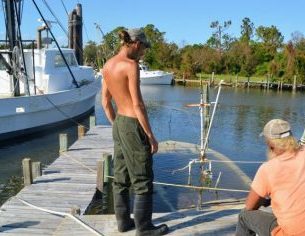
N.C. Fishermen brace for a difficult winter financially after the hurricane ruined much of their fall catch.
During a major hurricane, fish migrate away, oysters get contaminated and shrimp are blown to sea, scattered to deeper waters. Though sometimes unnoticed, the seafood industry takes a big hit after storms like Florence. Not only does the crop move, but fishermen often live and work in the coastal communities that take the brunt of the storm’s rage. “We get overlooked real easy. We are isolated to the coast. And unlike the agricultural industry, this affects everyone,” said Glenn Skinner, executive director of the North Carolina Fisheries Association. “Everyone who fishes is affected by this.” Their boats, gear, docks and packing houses take a blow. >click to read<20:33
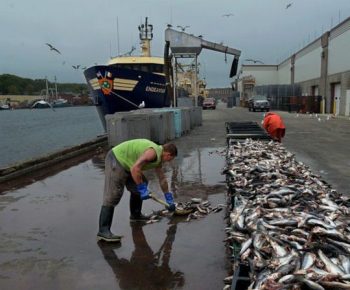
Gloucester: New herring rules prompt angst at dock
The protections for the Northeast herring fishery enacted this week by the New England Fishery Management Council are not welcome news for Cape Seafoods and could force the locally based seafood company to change the way it fishes.,,, One option, O’Neill said, is to change the way the company’s boats fish, moving away from the ultra-efficient midwater trawling to bottom trawling in the areas where the technique is allowed. “Even if we decide to make the investment in new gear, it’s not going to be an easy thing,” O’Neill said. “Everything the council does devalues our operation. It devalues the permits and it devalues the plant. How do you plan anything? How long before they try something else?” >click to read<16:34
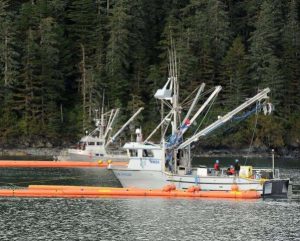
Prince William Sound fishermen test oil spill response skills near Whittier
At first glance, it appeared to be a carefully orchestrated aquatic slow dance, set to the tune of barking sea lions. About 20 small commercial fishing vessels were joined Tuesday by large barges and state-of-the-art tugboats to test new oil spill response equipment on Prince William Sound. Smaller craft towed “current buster” oil booms in tandem with larger fishing boats deploying skimmers that would collect oil from the boom for transfer to a barge tank. It was one in a series of training exercises by Alyeska Pipeline Service Co.’s Fishing Vessel Response Program, which has an annual budget of $8 million. “Without these fishing vessels you don’t have a response plan,” said Jeremy Robida, the spill prevention and response manager for the Prince William Sound Regional Citizens’ Advisory Council. >click to read<15:30

Lobsterman fear bait shortage with herring quota cut
At the height of the season, Brooklin lobsterman David Tarr spends $600 to $800 a day to bait his traps with herring, pogies or redfish. While some Maine lobstermen swear by herring, Tarr is willing to play the field based on price and availability. Unlike most of his peers, Tarr also has the luxury of a personal bait cooler, which allows him to buy bait when the price is right, salt it himself and store up to 200 barrels of it away — $40,000 of bait, enough for a half-season of fishing — for use during tough times. On Wednesday, one day after the New England Fisheries Management Council voted to recommend slashing the yearly herring quota by 80 percent, Tarr figures tough times are coming. “At a certain point, it is just not worth it,” Tarr said. “I won’t go fishing just to pay for my bait.”>click to read<14:03
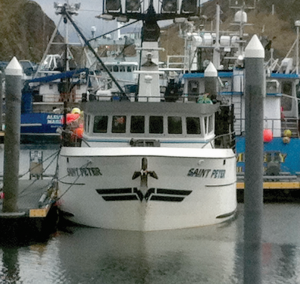
Bering Sea Battle breaks out over growth of ‘Super 8s’ in state cod fishery
The success of the state waters Dutch Harbor Pacific cod fishery in the Bering Sea is scaring both the industrial trawl and longline fleets, and even a local Unalaska fisherman who says a new breed of small boats known as Super 8s are catching way too many fish. In 2014, the new fishery opened with 3 percent of the total Bering Sea cod quota, and two years later it more than doubled to 6.4 percent, by votes of the Alaska Board of Fisheries to promote small boat fisheries. And it may get a lot bigger, as the board will soon hear proposals for growing the fishery to 8, 10 or as much as 20 percent of all the cod available to fishermen in the Bering Sea. >click to read<11:28
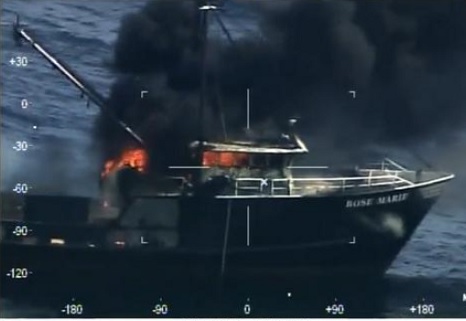
Fisherman Doug Evans is back on dry land after F/V Rose Marie caught fire at sea
Black smoke billowed from the portside of the Fairhaven-based Rose Marie as flames engulfed the steel hull of the 90-foot trawler. Cell phone video captures this from the life raft to which the four-hand crew of the fiery fishing vessel had made their escape. Though he admits it was scary, longtime Provincetown resident and commercial fisherman Doug Evans kept his wits about him. “I’ve been through this before, so I grabbed my keys, my wallet, my phone,” he says, and told his mates to do the same. “And a pair of shoes.” The men were dragging for flounder and lobster 60 to 70 miles east of Chatham on what was supposed to be a six-to-seven-day trip. It ended on Aug. 23, after they’d been out for one night, when the cook saw smoke coming out of a ventilator and went to investigate. >click to read<09:49



































